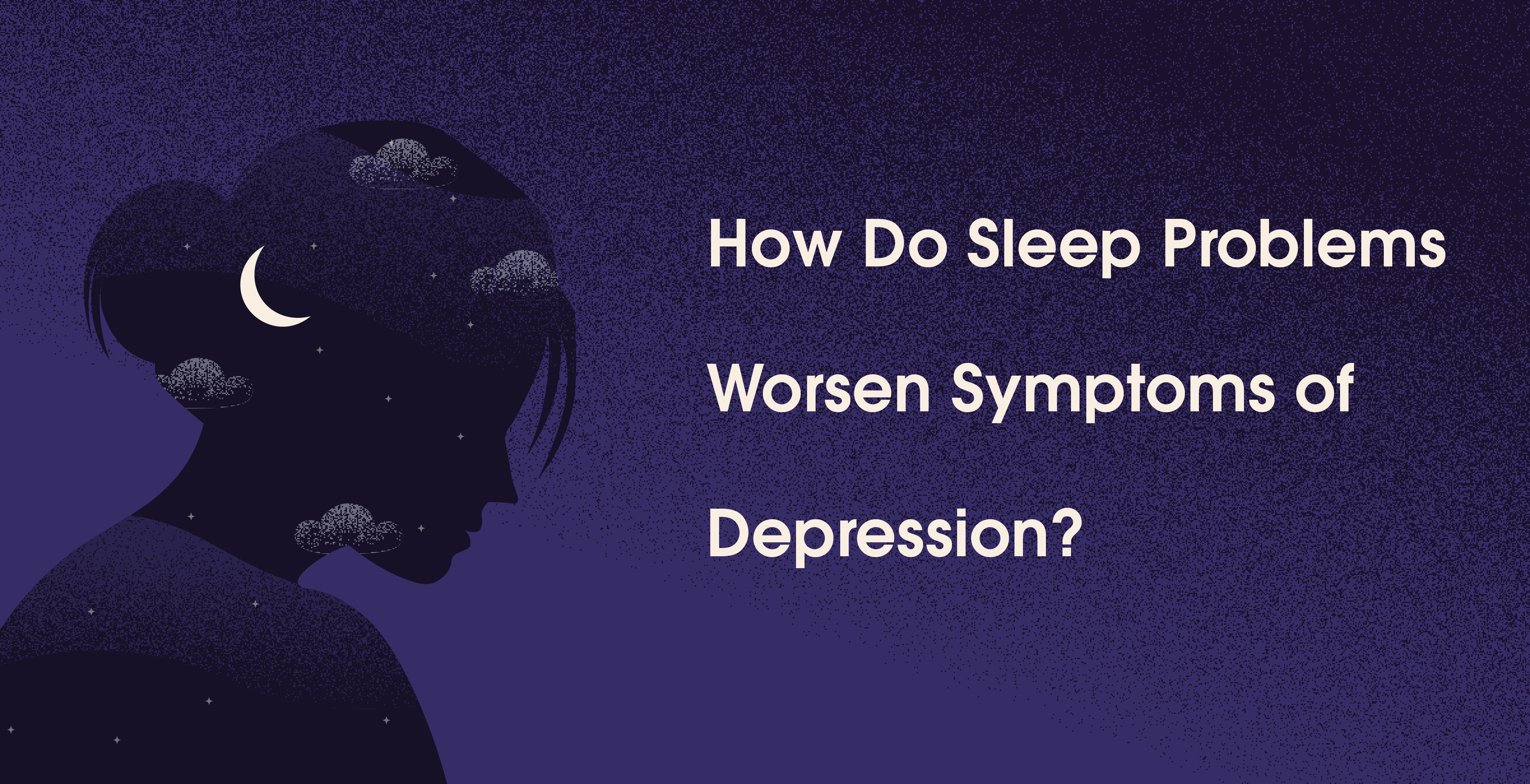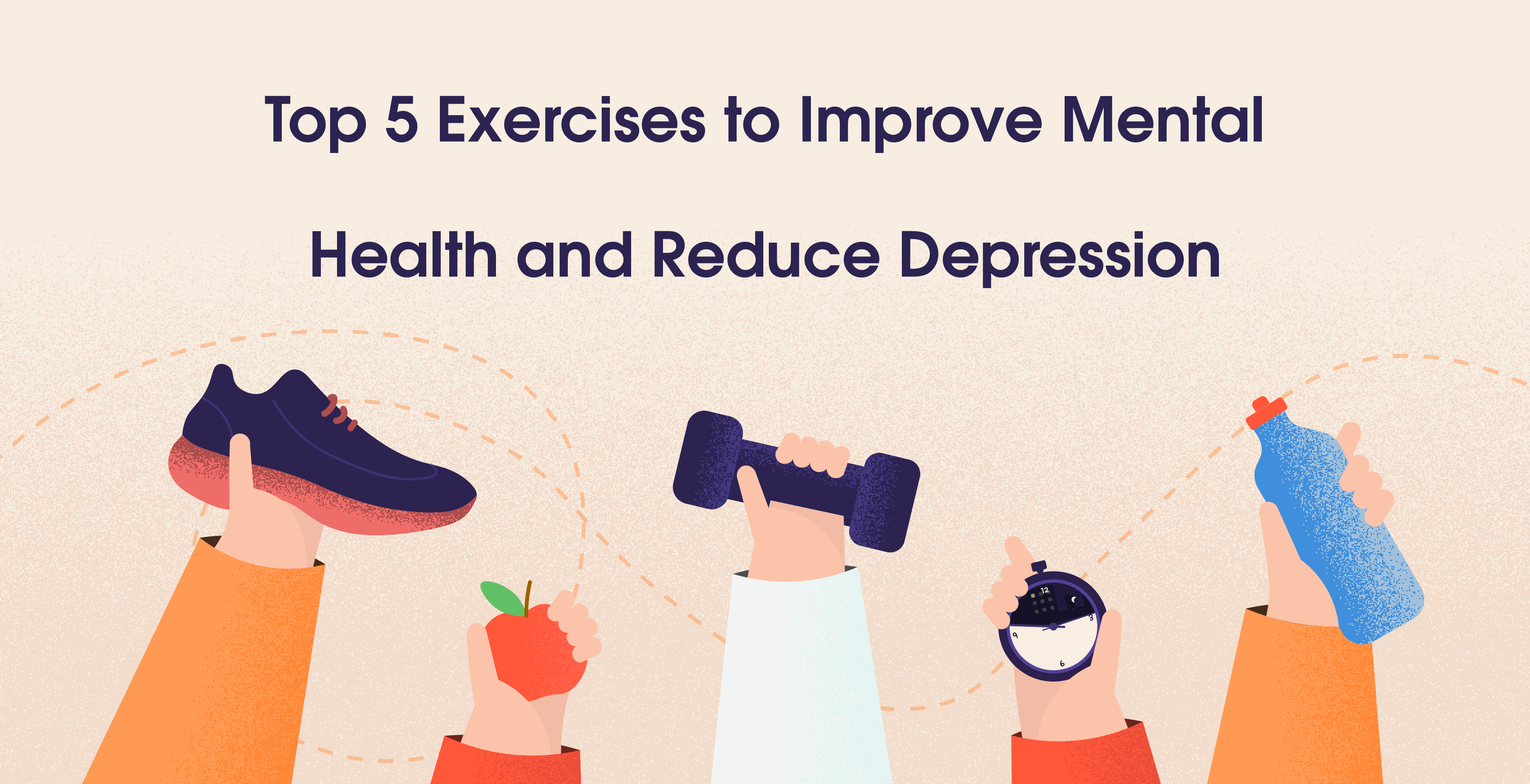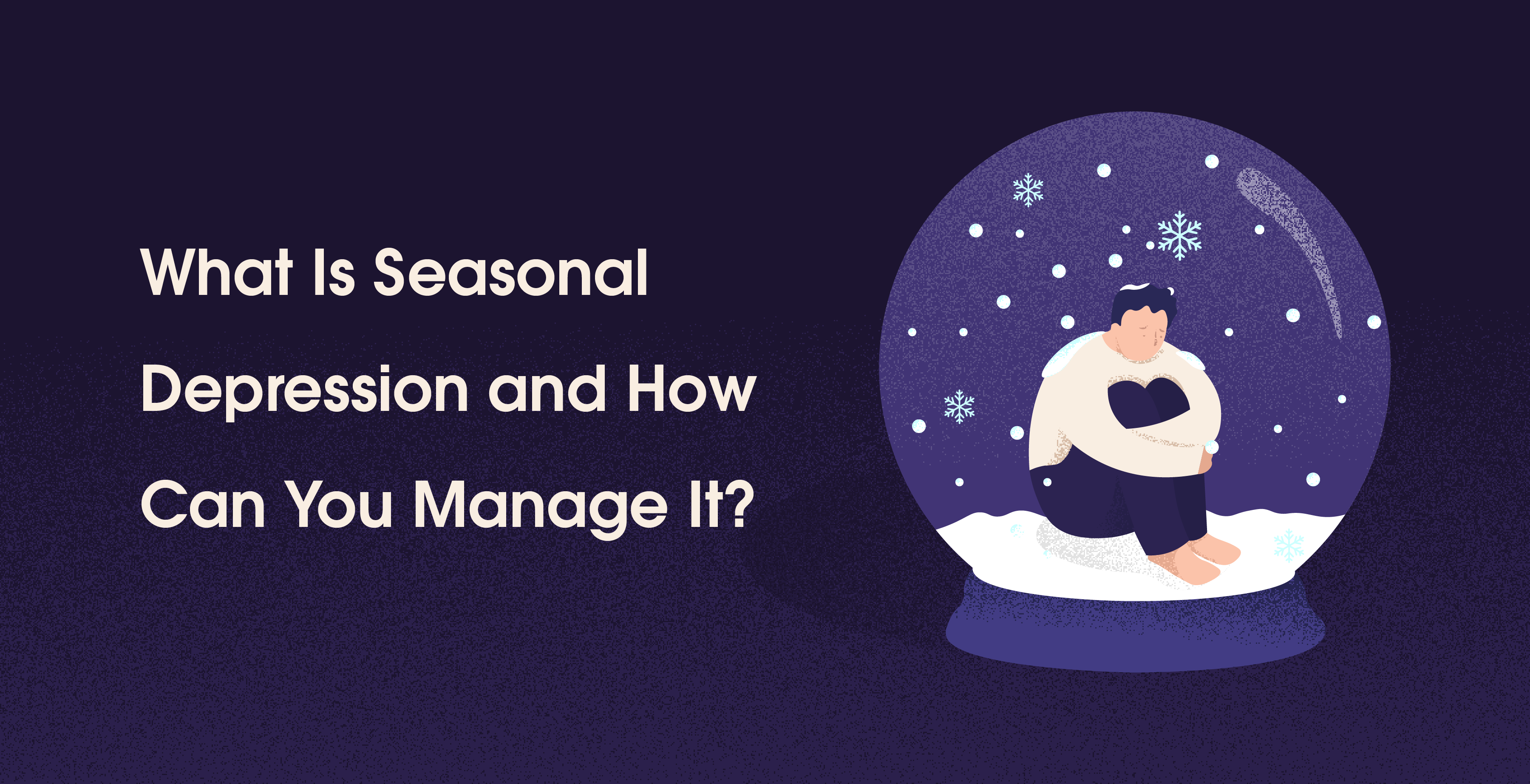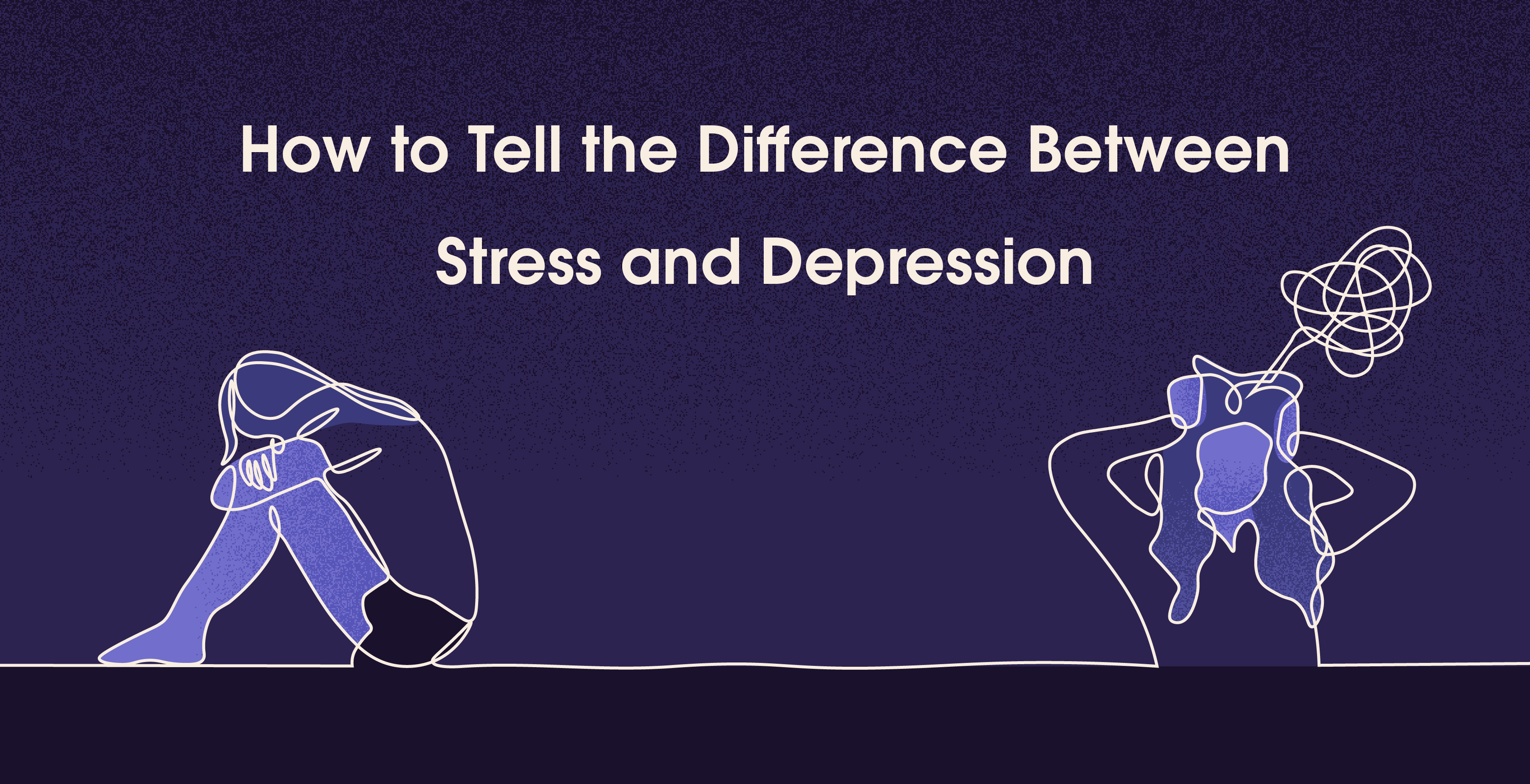How Do Sleep Problems Worsen Symptoms of Depression?
Feb 6, 2025
Sayfali Rawlani



Table Of Contents
We’ve all had those nights—tossing, turning, checking the clock, and bargaining with the universe for just a few solid hours of shut-eye. Now, imagine that happening every night. Over time, it’s not just exhaustion that kicks in—it’s mood swings, brain fog, and a creeping sense of hopelessness that makes everything feel ten times harder. That’s the brutal cycle of sleep problems and depression, feeding off each other like a toxic duo that just won’t quit.
But how exactly does a lack of sleep make depression worse? And why does it feel like once you’re stuck in this loop, breaking free seems almost impossible? Let’s dive in.
Highlights
Sleep deprivation disrupts emotional regulation, making depression symptoms worse.
The brain’s stress response intensifies without proper rest, increasing anxiety and negative thinking.
Depression itself can cause insomnia or hypersomnia, creating a vicious cycle of poor sleep and worsening mood.
Lack of sleep reduces motivation, making even small daily tasks feel impossible.
Sleep deprivation lowers serotonin levels while increasing cortisol, leading to mood instability.
Racing thoughts at night fuel rumination, deepening feelings of sadness and hopelessness.
Chronic exhaustion makes it harder to engage in self-care activities that help manage depression.
Fixing sleep issues while dealing with depression can feel overwhelming but is essential for recovery.
Small changes like consistent bedtime routines and reducing screen time can improve sleep quality.
Seeking professional help can break the cycle, improving both sleep and mental health.
The Sleepless Spiral: When Your Brain Won’t Power Down
Have you ever noticed how everything feels more overwhelming when you’re running on empty? That’s because sleep isn’t just about resting your body—it’s about giving your brain time to reset, process emotions, and keep your mental health in check. When you’re skimping on sleep, the emotional regulation part of your brain (hello, amygdala) goes haywire. It’s like a car without brakes—every stressor hits harder, and your ability to cope with it? Practically nonexistent.
For someone already dealing with depression, this is a nightmare. Small problems suddenly feel massive. The weight of sadness, anxiety, or numbness becomes unbearable. And since sleep deprivation also messes with the prefrontal cortex—the part of the brain responsible for rational thinking—you’re left with nothing but raw, unfiltered emotion.
The Never-Ending Negative Loop
Here’s where it gets worse. Depression itself can mess with sleep. Insomnia? Check. Waking up at odd hours with no hope of falling back asleep? Yep. And let’s not forget hypersomnia, where all you want to do is sleep, yet somehow still wake up feeling drained. It’s as if your body and mind are conspiring against you.
And then there’s the mental chatter. You lie awake, ruminating about everything you did wrong that day, everything that might go wrong tomorrow, and—oh, just for fun—every embarrassing moment you’ve ever had since middle school. The longer you stay awake, the darker your thoughts become. It’s like your brain is stuck on a loop of negativity, and without rest, there’s no way to break the cycle.
The Energy Drain That Kills Motivation
Lack of sleep doesn’t just mess with emotions—it drains your motivation. Depression already makes it tough to find the energy to do even the simplest tasks. Add sleep deprivation into the mix, and suddenly, everything feels impossible. Getting out of bed? Feels like climbing Everest. Making breakfast? Not happening. Answering a text? Too exhausting.
This feeds the guilt spiral. The more things you “fail” to do, the worse you feel. The worse you feel, the harder it becomes to do anything. And because sleep problems only intensify this, it’s no surprise that people struggling with both depression and insomnia are at a higher risk of prolonged depressive episodes.
Messing With the Body’s Happy Chemicals
Let’s talk about serotonin—the brain’s mood booster. Sleep plays a huge role in keeping this neurotransmitter in balance. When you’re sleep-deprived, serotonin levels take a hit, leaving you feeling more irritable, anxious, and emotionally drained. Meanwhile, cortisol, the stress hormone, skyrockets, keeping you in a constant state of fight-or-flight.
In other words, your brain is being flooded with all the wrong chemicals. Instead of feeling calm and balanced, you’re wired, exhausted, and emotionally unstable. The very hormones that are supposed to help regulate mood are completely out of whack, making depression even more unbearable.
Why Breaking the Cycle Feels Impossible
At this point, it’s clear that sleep and depression are tangled together in the worst way possible. But what makes this combo even more frustrating is how difficult it is to fix.
Feeling exhausted makes it harder to take steps toward better mental health—exercise, eating well, therapy, and even social interaction all feel like too much effort. And the worst part? The longer this goes on, the harder it becomes to believe that change is even possible.
This is why so many people with depression feel stuck. They know sleep is making everything worse, but fixing sleep issues while battling depression is like trying to put out a fire while standing in the middle of it.
Finding a Way Out
The good news? There is a way out—it just takes small, intentional steps. Building a sleep routine, even when it feels pointless, can make a difference. Ditching late-night screen time, keeping a consistent bedtime, avoiding caffeine in the evening, and creating a wind-down routine can all help train your brain to slow down.
And most importantly—getting professional help. Therapy, medication, and sleep treatments can provide the reset your mind and body desperately need. It might not be an instant fix, but even small improvements in sleep can lead to massive shifts in mental health.
Because at the end of the day, sleep isn’t just about rest. It’s about survival. And when depression and sleep problems collide, the best thing you can do is fight for every bit of rest you can get.
References
We’ve all had those nights—tossing, turning, checking the clock, and bargaining with the universe for just a few solid hours of shut-eye. Now, imagine that happening every night. Over time, it’s not just exhaustion that kicks in—it’s mood swings, brain fog, and a creeping sense of hopelessness that makes everything feel ten times harder. That’s the brutal cycle of sleep problems and depression, feeding off each other like a toxic duo that just won’t quit.
But how exactly does a lack of sleep make depression worse? And why does it feel like once you’re stuck in this loop, breaking free seems almost impossible? Let’s dive in.
Highlights
Sleep deprivation disrupts emotional regulation, making depression symptoms worse.
The brain’s stress response intensifies without proper rest, increasing anxiety and negative thinking.
Depression itself can cause insomnia or hypersomnia, creating a vicious cycle of poor sleep and worsening mood.
Lack of sleep reduces motivation, making even small daily tasks feel impossible.
Sleep deprivation lowers serotonin levels while increasing cortisol, leading to mood instability.
Racing thoughts at night fuel rumination, deepening feelings of sadness and hopelessness.
Chronic exhaustion makes it harder to engage in self-care activities that help manage depression.
Fixing sleep issues while dealing with depression can feel overwhelming but is essential for recovery.
Small changes like consistent bedtime routines and reducing screen time can improve sleep quality.
Seeking professional help can break the cycle, improving both sleep and mental health.
The Sleepless Spiral: When Your Brain Won’t Power Down
Have you ever noticed how everything feels more overwhelming when you’re running on empty? That’s because sleep isn’t just about resting your body—it’s about giving your brain time to reset, process emotions, and keep your mental health in check. When you’re skimping on sleep, the emotional regulation part of your brain (hello, amygdala) goes haywire. It’s like a car without brakes—every stressor hits harder, and your ability to cope with it? Practically nonexistent.
For someone already dealing with depression, this is a nightmare. Small problems suddenly feel massive. The weight of sadness, anxiety, or numbness becomes unbearable. And since sleep deprivation also messes with the prefrontal cortex—the part of the brain responsible for rational thinking—you’re left with nothing but raw, unfiltered emotion.
The Never-Ending Negative Loop
Here’s where it gets worse. Depression itself can mess with sleep. Insomnia? Check. Waking up at odd hours with no hope of falling back asleep? Yep. And let’s not forget hypersomnia, where all you want to do is sleep, yet somehow still wake up feeling drained. It’s as if your body and mind are conspiring against you.
And then there’s the mental chatter. You lie awake, ruminating about everything you did wrong that day, everything that might go wrong tomorrow, and—oh, just for fun—every embarrassing moment you’ve ever had since middle school. The longer you stay awake, the darker your thoughts become. It’s like your brain is stuck on a loop of negativity, and without rest, there’s no way to break the cycle.
The Energy Drain That Kills Motivation
Lack of sleep doesn’t just mess with emotions—it drains your motivation. Depression already makes it tough to find the energy to do even the simplest tasks. Add sleep deprivation into the mix, and suddenly, everything feels impossible. Getting out of bed? Feels like climbing Everest. Making breakfast? Not happening. Answering a text? Too exhausting.
This feeds the guilt spiral. The more things you “fail” to do, the worse you feel. The worse you feel, the harder it becomes to do anything. And because sleep problems only intensify this, it’s no surprise that people struggling with both depression and insomnia are at a higher risk of prolonged depressive episodes.
Messing With the Body’s Happy Chemicals
Let’s talk about serotonin—the brain’s mood booster. Sleep plays a huge role in keeping this neurotransmitter in balance. When you’re sleep-deprived, serotonin levels take a hit, leaving you feeling more irritable, anxious, and emotionally drained. Meanwhile, cortisol, the stress hormone, skyrockets, keeping you in a constant state of fight-or-flight.
In other words, your brain is being flooded with all the wrong chemicals. Instead of feeling calm and balanced, you’re wired, exhausted, and emotionally unstable. The very hormones that are supposed to help regulate mood are completely out of whack, making depression even more unbearable.
Why Breaking the Cycle Feels Impossible
At this point, it’s clear that sleep and depression are tangled together in the worst way possible. But what makes this combo even more frustrating is how difficult it is to fix.
Feeling exhausted makes it harder to take steps toward better mental health—exercise, eating well, therapy, and even social interaction all feel like too much effort. And the worst part? The longer this goes on, the harder it becomes to believe that change is even possible.
This is why so many people with depression feel stuck. They know sleep is making everything worse, but fixing sleep issues while battling depression is like trying to put out a fire while standing in the middle of it.
Finding a Way Out
The good news? There is a way out—it just takes small, intentional steps. Building a sleep routine, even when it feels pointless, can make a difference. Ditching late-night screen time, keeping a consistent bedtime, avoiding caffeine in the evening, and creating a wind-down routine can all help train your brain to slow down.
And most importantly—getting professional help. Therapy, medication, and sleep treatments can provide the reset your mind and body desperately need. It might not be an instant fix, but even small improvements in sleep can lead to massive shifts in mental health.
Because at the end of the day, sleep isn’t just about rest. It’s about survival. And when depression and sleep problems collide, the best thing you can do is fight for every bit of rest you can get.
References
Table Of Contents
Table Of Contents
Table Of Contents
Read More


Mar 28, 2025
Sayfali Rawlani


Jan 28, 2025
Sayfali Rawlani


Jan 24, 2025
Sayfali Rawlani



Company
Copyright © 2025 trst health. All right reserved.

